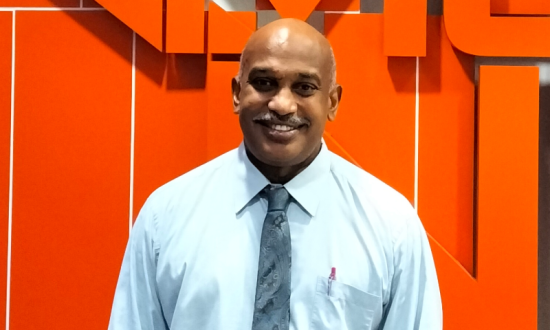Dr Carrera, aka, Dr Mario, has been teaching business related courses to mostly undergraduates at Thai universities since 2016. Before teaching, Dr Mario spent 20 years in the petroleum industry in Trinidad and Tobago, Oman, United Arab Emirates and Kuwait. Having studied in Jamaica, UK and USA, Dr Mario has a global perspective on learning and work, and is interested in making education, simple, practical and usable.
With the changing nature of students in the 2020s, assessments need to test and stimulate students’ thinking, more so. This requires even more creativity, flexibility and effort from teachers. Thus, common assessment elements in my courses are class journals, reflective essays and out-of-class interaction. These activities challenge the students to review the material, think about the class and see how the material is relevant beyond the classroom.
The guidance, maturity and standards expected of new undergraduates in the pre-2000s are missing by the 2020s generation. University students require more guidance than information when they can can “just Google it”. Thus, university classes need a greater eclectic mix of content and course requirements. Working with these rapidly changing conditions is tough for educators.
To accommodate students who have problems with reading, having a conversation, deciding for themselves, and just being curious, course creation, delivery, and exams need to change. My classes are evolving, and so are my assessments. I now focus more on reflective learning and skill development while trying to keep up with creative course content and future work needs.
I teach primarily business communication and personal development courses. However, the principles can apply to a broad number of courses. Academic and other media reports show that students need to read course material, better prepare for class, show interest in class discussions, and apply themselves more to school. This apathy is global. As a result, I have resorted to radically telling students to attend my class only if they really want to learn. If not, do not attend. The mass of disinterest holds back students interested in learning. Hence, those who attend contribute to making classes more interactive, educational, and beneficial.
All my classes now require a class journal for the students who attend. This short (150-250 words) reflects their experience in the classroom after every session. What they experienced, enjoyed, thought, and so on. A journal is suitable for students to understand the experience better, think about what they are doing, why and how they can use the class material. Also, it allows the students to practice writing by expressing themselves freely. I can serve learners by better understanding individual needs and experiences. Students have started discovering themselves through these reflective posts.

Another practice in setting exams is using reflective essays (an example is in the figure above), such as asking how the course has changed their awareness, knowledge and perception of the topic. A typical question may ask learners how their approach to writing changed over the semester of Business Writing, using examples and references. Students are thus prompted to review the class material, read links in class material and think about the class experience. Even those not attending class must read the material and consider the possibilities. There is some rote learning but more thinking about using the material. A reflective essay also helps me understand what worked and did not over the semester to improve each semester. Also, students are faced with what they have done by their own writing. This self-realization sparks an honest discussion that surprises the students themselves.
Over the past three years, I have included a component of having conversations in student assessment. University students are not interacting with each other, or professionals as expected. Interacting through social media limits their basic communication skills. Home life also does not involve building the talking skills or exposure traditionally expected. So, I spend at least three hours of a semester specifically on how to have a conversation along with activities and guides on talking with others.
Students are then given an assignment to talk with others over the semester. For example, first-year students are asked to speak with at least ten seniors about succeeding at university and write about what they learnt and the experience. My third-year students must attend professional events and talk about work, career and success with ten professionals. Writing about the experience helps the student think about possibilities. In-class activities include speed-dating type conversations and small groups where individuals are randomly moved to different groups. It is often the first-time students have interacted with a working professional or even spoken with classmates! These exercises have helped build the students’ maturity, outlook and exposure. More than half of the class mentioned how eye-opening the exercises were. One engineering student was happy as he found a way to integrate his engineering skills with his gym interest thus satisfying his parents while pursuing his passion.
University graduates’ expected skills, maturity and approach have changed; thus, student assessment, among other aspects of higher education, must also change. Lecturers must prompt, probe and push in the direction necessary for students to succeed. By using reflective and active exercises, students can learn and develop the skills needed to function positively as adults. Designing these exercises is more work for the lecturer. However, the results for students (interested or not) have been positive and align with the teaching goals.




